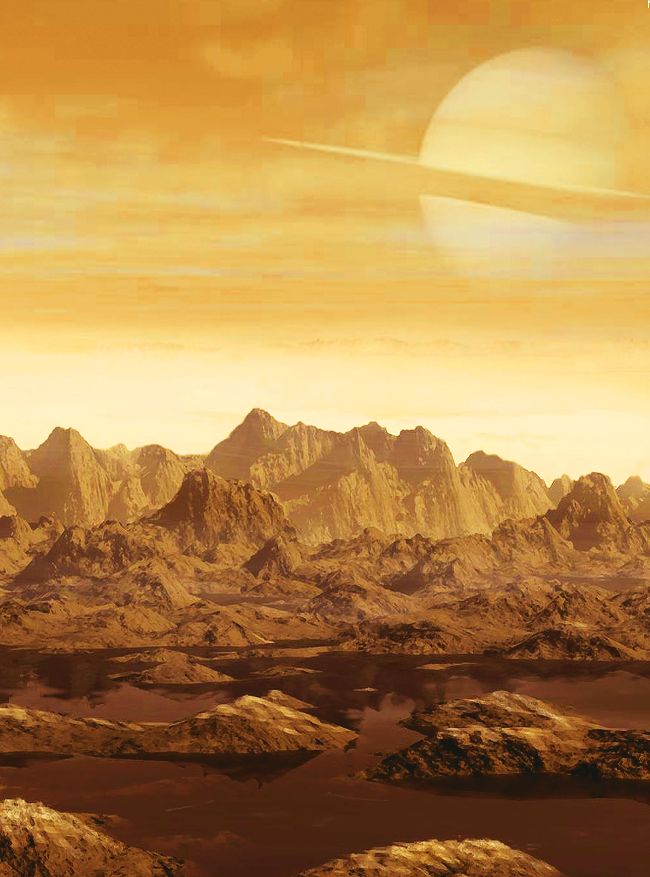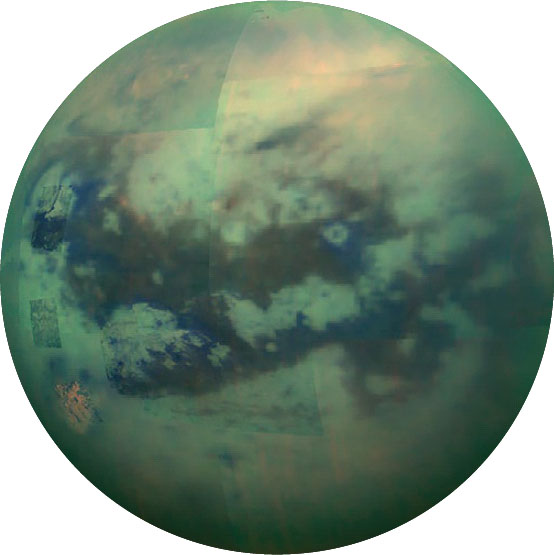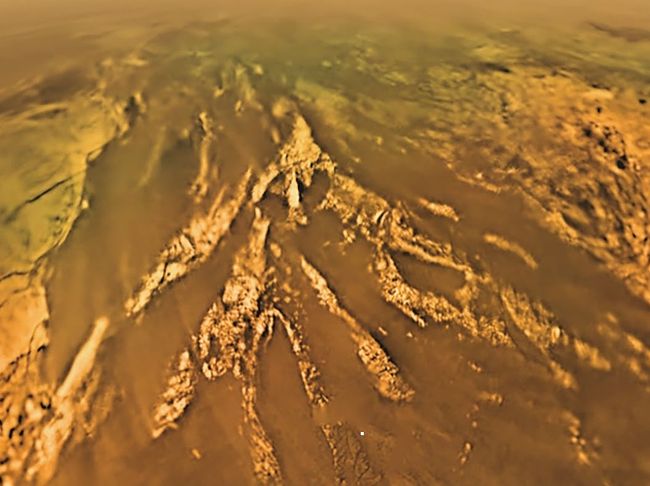ESCAPE TO TITAN
When the Sun scorches Earth, a tiny moon in orbit around the ringed giant Saturn is our next home
Reported by David Crookes

© NASA/JPL-Caltech
Our planet may have survived for 4.5 billion years, but humanity faces some major threats. There’s always the possibility that an asteroid will wipe us out, just as one did for the dinosaurs some 65 million years ago. We could be engulfed by a gamma-ray burst or disrupted by a wandering star. There are also dangers closer to home, from volcanoes to nuclear war. Even supposing humans manage to survive all these threats, we can still say for certain that life here on Earth will eventually be no more. In around 5 billion years from now the Sun will undergo a massive change that will fundamentally alter our Solar System. It will cause the end of not only all life here on Earth, but possibly the entire planet, and we will have no choice other than to find somewhere else to live.
Astronomers have been looking at the possibilities of colonising other planets for years. Mars currently tops the list of destinations, with NASA working hard to develop the capabilities needed to send humans to the Red Planet in the 2030s. Yet some scientists are taking a much longer view. Rather than looking towards the terrestrial planets for our new home, they say humans will one day have to relocate to the outer Solar System if they want to survive. As it currently stands, sending scores of humans to live beyond the asteroid belt is out of the question. The four gas giants are utterly unsuitable for life, and the moons of the outer Solar System are well outside of the habitable zone - the region around the Sun where the atmospheric pressure is able to support liquid water, making conditions for life as we know it ‘just right’.

The Cassini-Huygens mission sent back up-close views of the Saturnian moon
“IN AROUND A BILLION YEARS’ TIME, EARTH WILL PROBABLY NO LONGER BE HABITABLE FOR HUMANS”
BENJAMIN CHARNAY

Titan’s water ice holds key ingredients necessary for life - they just need heating
Yet things can and will change. The Sun is getting gradually warmer, and it will eventually become so hot that it will boil off Earth’s oceans. This will happen sooner than we think. “In around a billion years’ time, Earth will probably no longer be habitable for humans,” says Benjamin Charnay, a research associate at the French National Centre for Scientific Research from the Observatoire de Paris. “The increasing solar insulation means Earth will either evaporate all of its oceans or lose them by the atmospheric escape of hydrogen.”